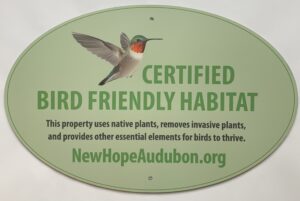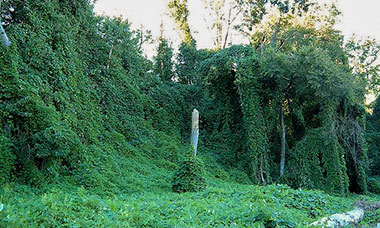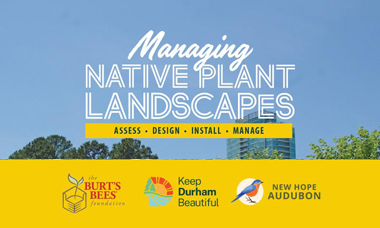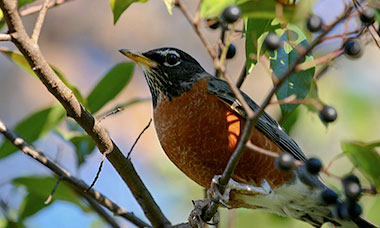Bird Friendly Habitat
As the land is increasingly developed in our area, we are destroying much of the native habitat on which birds and other wildlife depend. Typical developments include large areas of lawn and non-native plants. Some of these non-native plants escape cultivation and take over the few remaining natural areas, which in turn threatens those habitats for wildlife.
The New Hope Audubon Society is trying to restore native habitat and reduce the pressure from invasive plants through education and direct intervention. We are educating people about the benefits of using native plants, how to identify and remove invasive plants, and other steps they can take to make their property more bird-friendly. Our goal is to create Bird Friendly Communities, a goal we share with North Carolina Audubon.
Special update, July 2021: New Hope Audubon has been awarded a Sustainable Communities grant from the Triangle Community Foundation in the amount of $15,000. Grant funds will be used to create and pilot a “Leave Your Leaves” public education program enhancing environmental conservation efforts in our local communities. Click here for details.
Bird Friendly Habitat Certification
To encourage and guide people in the process of creating bird friendly habitat on their property, New Hope Audubon is offering a Bird Friendly Habitat Certification Program where we visit your property to identify native and invasive plants and advise you on making the habitat both safer and friendlier for wildlife. For more details about the program and to apply for a Certification Visit, see our Certification Request page. We also have a Bird Friendly Habitat Certification Brochure that you can take a look at.
For more information on any of the key elements of creating a bird friendly habitat, follow the links below by clicking on a photograph.



